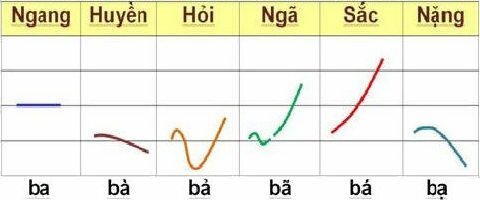Vietnamese is a very complex language to understand and learning it requires a significant investment of time and energy. Beyond the fact that mastering Vietnamese gives you a significant professional advantage, this language expands your horizons. But the question that everyone asks when proposing this language is “why?”. Through this article, you will discover the different advantages of knowing Vietnamese and some possibilities of how to learn it.
The Benefits of Learning Vietnamese
Before going any further, be aware that you are not required to learn this language. You can go to Vietnam, live there and do whatever you want without speaking Vietnamese. However, mastering this language will allow you to open other doors that are especially favorable to your professional and social progress.
The Professional Advantage of the Vietnamese Language
While it is true that most expatriates from the US, UK, Europe, Australia and other origins working in Vietnam do not speak the language, you will gain a lot from it on a professional level. If one of the competing candidates has the same work experience as you, the recruiter will have to decide between you and the other person on another criteria. It will then consider the social character, in this case the local language, so you will be the more favorable candidate if you have this advantage.

Alternatively, you may decide to start a business in Vietnam. The command of the Vietnamese language will give you an easy integration and will encourage a more consistent dialogue with staff, customers and possibly suppliers. The same will apply if you are sent by a foreign company. It would even be a selection criterion to benefit from a possible promotion.
Autonomy Made Possible by Learning Vietnamese
If you arrive in Vietnam and plan to spend a great deal of some time there, you will need to know this language. It is not uncommon to see that many people are forced to be accompanied or to seek the help of a person to help them with shopping, or even to understand simple information. As a result, they find themselves dependent on others because of the language barrier.
Fascinating Integration: Talking to Locals in the Countryside of Vietnam
This is perhaps the most important benefit of learning Vietnamese. Certainly, the Vietnamese people speak English better and better, but not all of them, so communication may prove to be difficult. If you learn Vietnamese, you will have no obstacles to exchange and converse with your environment. You will thus be able to discover the culture of the region as well as all of its possibilities, which will be an endlessly rewarding life experience. After all, language is the best reflection of culture.

Before you decide to learn the language , it is important to know a little more about the particularity of Vietnamese.
Q&A : how to learn Vietnamese and speak fluently?
🤔 Is it a must to speak Vietnamese in order to get a job in Vietnam?
No, it is not necessary. There are many jobs in Vietnam that offer English-speaking environment, or do not require any live communication at all, such as freelance positions. Nevertheless, getting employed in Vietnam will be much easier if you speak Vietnamese fluently, as you will have access to all jobs in your niche and open new career opportunities.
🇫🇷 Does Vietnamese have borrowings from any European language?
Yes. As Vietnam was a French colony in the mid-19th century, it has many borrowings from the French language, and is currently the largest Francophone country in Asia. Therefore, don’t get surprised if you hear some familiar words when learning Vietnamese!
💖 I love you in Vietnamese language : how do we say it ?
In the written language we would say “Tôi yêu Bạn” but we’ll never say it in our normal talk. Why is that? It’s the “formal” way to say it but the Vietnamese people will use another way to say it. As we use the pronouns “Anh, Em, Con, Chú, Cô” to position ourselves in relation to the other person, we have to use another way to say “I love you” properly in Vietnamese. So here is how to say “I love you” in Vietnamese:
- a young boy to his girlfriend will say “Anh yêu Em”,
- a child to an adult will use “Con yêu Chú,”
- a wife to her husband will say, “Em yêu Anh,”
- a child to his mother “Con Yêu Mẹ”
🎓 Can I speak Vietnamese with my native language accent and be understood by the locals?
Not always. Vietnamese is a tonal language, which means that the syllables of the words are subject to particular tones. Therefore, if you pronounce Vietnamese words with your native language accent, it might happen so that you are understood by the Vietnamese in a wrong way. Therefore, make sure you pay attention to that accent and tones!
📱 Can I learn Vietnamese remotely?
Absolutely. In our digital era all languages can be learnt online, and Vietnamese is no exception. The net offers a large variety of free learning materials as well as platforms to find online tutors who will help you master the Vietnamese language.
🥇 What platform would you recommend to learn Vietnamese?
Our personal favorite is Italki – this platform gathered some of the best teachers of Vietnamese out there. Having hundreds of tutors of Vietnamese, you will definitely find someone who will fit your needs and budget. One of the major perks of the platform is that you can book trial lessons that will help you get to know your future teacher and make a smart decision without having to spend a fortune on language learning.
Click here to discover the #1 app to learn vietnamese
Particularity of Vietnamese: Learning Vietnamese is Not Easy
If we are to talk about the origins of this language, please be aware that Vietnamese is a language from South-East Asia. The Chinese had a lot of influence on the country.
A Tonal Language: Different Accents to Master in Order to Speak Vietnamese Well
A tonal language is a language where syllables are subjected to particular tones or accents. This is quite common, because with the exception of European languages, all other languages are tonal. For example, Chinese has five tones , while Vietnamese has six tones, but in southern Vietnam there are only five tones.

Tones represent the major difficulty in learning this language. But once you have a good command of the tone, the rest comes more easily, so learning about tones first is suggested. Thus, learning tones is an essential step that should not be underestimated. Here is an image to summarize the six tones:
A Monosyllabic Language
The fact that Vietnamese is monosyllabic does not mean that only one syllable is used. It simply means that each word in this language has only one syllable. However, this criterion is not always respected, because there are words that can have up to 3 syllables, but this is extremely rare. Another criterion that makes learning more complex is that there are many words that are composed of simple words. Example :
- máy (machine) + giặt (washing) = máy giặt (washing machine)
- máy (machine) + bay (fly) = máy bay (plane)
- máy (machine) + lạnh (cold) = máy lạnh (air conditioner and not refrigerator!)
An insulating language
Another ease of learning this language is that it does not have a regular verb or article accompanying the nouns. In addition, the grammar is quite easy to use. Below is a table that explains facilities and difficulties of this language.
The Facilities:
- The writing: quốc ngữ is a Latin transcription. Vietnamese was once written like Chinese. But now, this language is written with the Latin alphabet. It is the only language in Asia that uses Latin. The only difference is that we add accents or diacritics. The Vietnamese alphabet has 29 letters, including 12 vowels.
- Similarities with French: several words are used in Vietnamese and have their origin in the French language. Currently, there are about 100 of these words that are regularly used. However, pronunciation can be very different. Example: so co la (chocolate), pa tê (pâté), cà rốt (carrot), cà phê (coffee), op la (fried egg), bơ (butter, no “r” in Vietnamese !), ga (station), garage, ghi đông (handlebar)

The Difficulties:
- Tones: The main barrier to learning this language is accent. A mispronunciation could lead to misunderstanding.
- Pronunciation: It is also a difficulty that many people face. A French pronunciation will mean that you will not be understood by your interlocutor. Even with the wrong accent, you can understand a stranger who speaks French. But without good pronunciation, the Vietnamese won’t understand you.
- Personal pronouns: Do not try to guess, as there are none. Personal pronouns are not found in the vocabulary of this language. These are family words that are used instead. That says a lot about the ties that bind these people together. Here is an example: in English:
– Hi, are you all right?
– Yes, I’m fine. I’m fine.
In Vietnamese (a man is talking to another younger man):
– Hi, is little brother okay?
– Yes, little brother is fine.
It can be seen that learning Vietnamese is quite particular and complex. It is not uncommon to see French people abandon the challenge despite weeks or months of learning. While it is true that some people may have more difficulty learning a language, it is important to remain motivated and determined. Here are some recommendations to make learning easier for you
- Unfailing motivation and determination: The more difficulty you feel, the more determination you need to show. The first few months should be devoted to tones. You must continue to improve until you no longer have any difficulty making yourself understood.
- Practice getting perfect pronunciation: Practice pronunciation and accents regularly
- Forget your age: Let yourself be shaped like a child just starting out in learning his or her mother tongue. Listen, and repeat, several times as a baby does.
- Find a partner: Know that the more oral exercises you do, the sooner you will be comfortable with this language. So you can find someone who can talk to you and correct you even if they don’t care about your European accent.
- Have fun: It certainly takes a lot of effort to master this language. But like the little child who learns to speak, you must enjoy it. If by learning to talk you give others moments of laughter, so much the better, because you also do them good.
Learning Vietnamese – What Are the Ways to Learn This Language?
There are several ways to learn Vietnamese.

How to learn Vietnamese at school or university from outside Vietnam:
- On the internet: you can find Vietnamese people who want to teach you. All you have to do is find a correspondent on one of the following websites: www.mylanguageexchange.com, www.conversationexchange.com or www.contactsfrancophones.com
- Paper guides: for the French, it is ASSIMIL that is recommended. It is easy to learn with simple methods and the accent used is that of North Vietnamese.
- In specialized schools: there are language schools that offer these types of services.
Good schools to learn Vietnamese in Vietnam
University of Social Sciences and Humanities – National University
(Hồ Chí Minh City, Vietnam)
12 Dinh Tien Hoang, Q.1, HCM
Phone : (84-8) 822 50 09
Site : http://www.hcmussh.edu.vn
Owner : Dr. Nguyen Van Lich
Secretary : Mme Tran Thi Kim Anh
